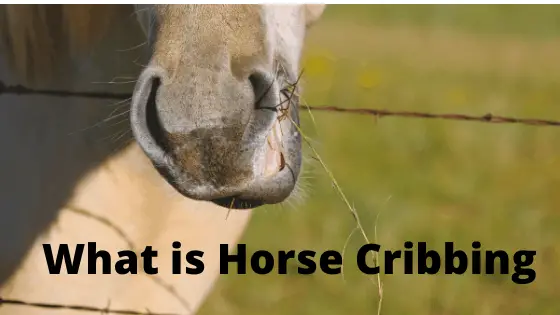What is Horse Cribbing
Why do Horses Crib / Windsucking
What is Horse Cribbing – Addictions are not common to humans alone, as we can most times find them in livestock like horses when they crib. And that’s why today, we are going to have an overview of what horse cribbing is, and how it can be controlled.
What is Horse Cribbing
While some call it crib-biting, cribbing, aerophobia, or erroneously “windsucking”, this is a stereotypical behavior in horses that are most often caused by excessive boredom, stress, or a genetic predisposition.
Just like when humans get addicted to a bad attitude and keep repeating it every day, cribbing is a repetitive and compulsive, behavioral disorder, which like any other harmful addiction, only takes a special intervention to be stopped.
Don’t let any herb marketer or website fool you into believing that all cribbing horses can be controlled through their product or ideas, as those are often empty and fruitless words.
Instead, if you have a cribber, rather the spending a lot of money on purchasing herbs, it is worth trying different things to control the habit, even though some cases are incurable. You must have this in mind.
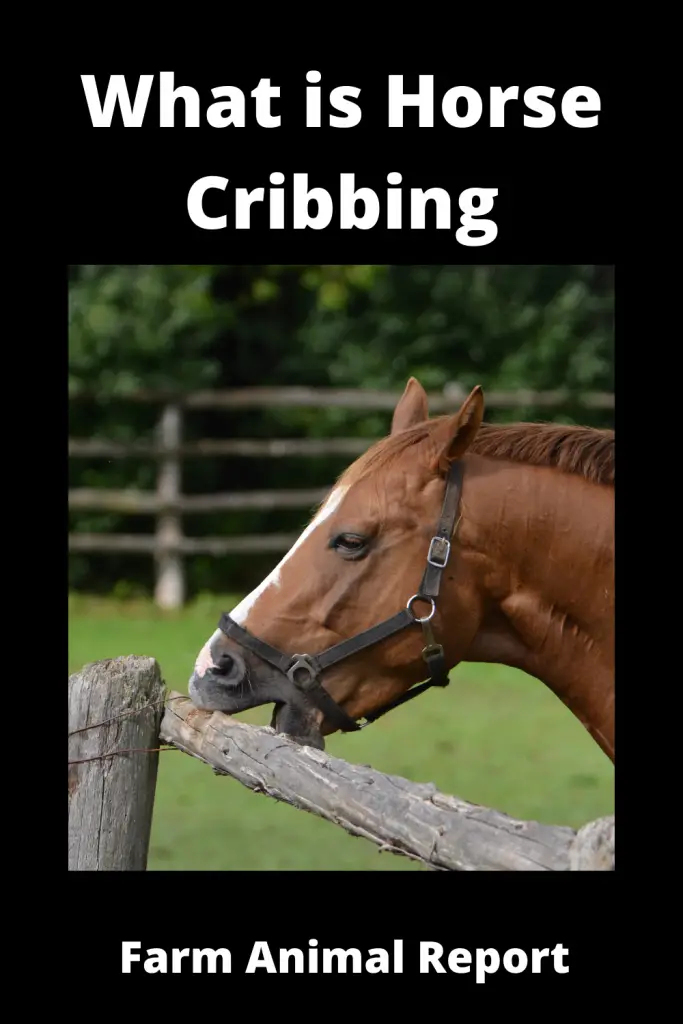
And, even if you’re successful in controlling the horse from cribbing in one aspect, it is almost impossible to stop it from cribbing in all situations. This is because, when you sell off a cribbing horse that you were able to control, it won’t hesitate to pick up that same habit or a new one, as soon as it gets into his new home. So, if you’re selling a cribber, you have to let the new owner that the horse has this problem.
MEANING OF CRIBBING?
Often times, cribbing is characterized when a horse repeatedly grabs a horizontal object with its upper incisors and pulls it against the object with an arched neck. And as soon as the horse is in that position, it then sucks in a big amount of air and makes a trademark grunting sound.
And it may come as a surprise to you that wild horses, don’t engage in cribbing. This is because cribbing has a lot to do with how a horse is taken care of. That is, if the horse is always bored, with bad temperament, often over-stressed, not fed a proper diet, or born with cribbing genetics, it is very likely for such a horse to become a cribbing type.
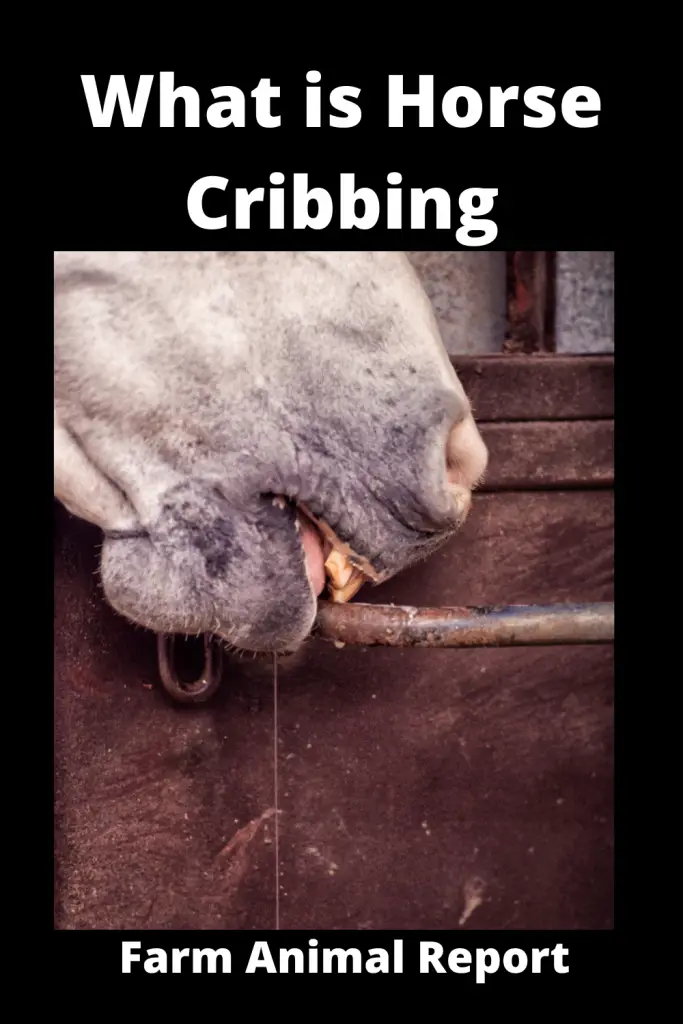
Plus, just as humans start developing bad attitude at a tender age, cribbing, seems to commence mostly during the younger ages of a horse, like about several months old or so.
See Our Guide – 10 Ways Horse Farmers Make Money
In other words, to make sure that the young horse doesn’t grow up to develop a cribbing habit, you need to ensure that it spends as much time as possible on pasture, while always staying in touch(close) with other horses too. Put differently, never allow the young horse to always spend time alone.
Also, according to a suggestion from research studies, there are certain grain diets, that may increase the risk of a young horse growing into developing the cribbing habit. So be careful what you feed your horse with.
WILL CRIBBING HURT MY HORSE?
Again, like addictions, it can ruin your life in the long run. So undoubtedly, cribbing can have far-reaching detrimental effect on your horse, if it keeps on tolling that path for a long time.
It can increase a horse’s risk of developing stomach ulcers or colic. Plus, excessive tooth wear, as a result of chronic horse cribbers, may also affect the ability of this kind of horses to eat properly.
And lastly, cribbing may also lead to weight loss because, the addiction would cause them to choose to crib, overeating their meals. Or, they could lose their appetite to eat as a result of the excessive air that gets into their stomach when they are cribbing.
HOW TO CONTROL CRIBBING?
There is no one method to stop cribbing in certain horses, however, there are ways to manage them. Here are some suggestions on how you can manage your cribbers.
- Make use of a cribbing strap or a cribbing collar, which will make the horse feel very uncomfortable whenever it wants to flex his neck muscles, as he pulls back to gulp the air. The strap or collar will make it extremely uncomfortable for the horse to flex his neck, without causing any form of harm to the horse. Over time, the horse will refrain from cribbing, as long as your collar or strap is still on their neck to deter them from trying again.
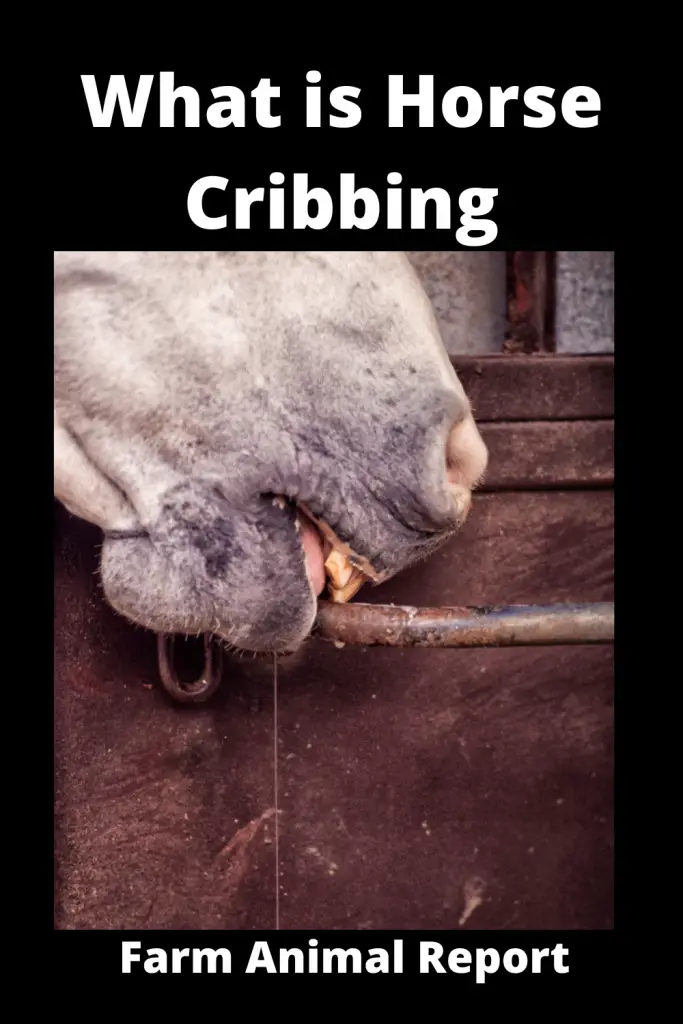
- Feed your horse with diets that have more forage and fewer grains, as this is often known to lift the mood of horses, thus creating a lesser cribbing implication on the horse.
- You can make use of a toy in reducing the cribbing frequency of a horse. And, playing with the horse using the toy should be done outdoor, in an open place for it to run around. Do this regularly to avoid creating a boredom syndrome in the horse, which is certainly going to cause cribbing.
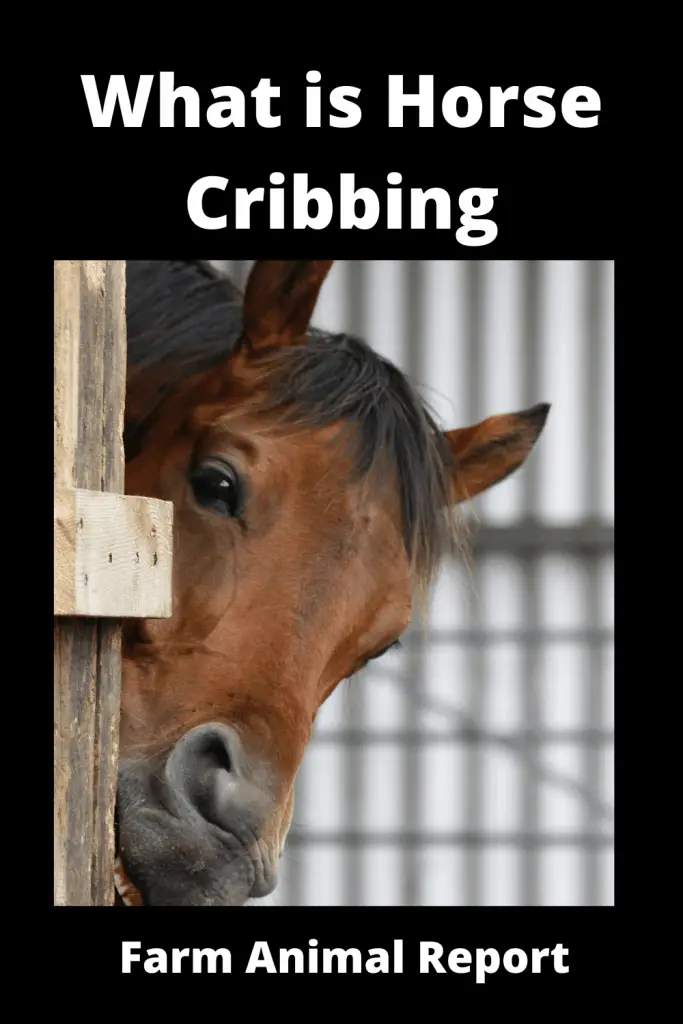
- Another way to tackle the issue is by taking off the surfaces where these horses crib on. So, you can start by taking off cribbing surfaces like the fence post and so on, where the horse is fond of cribbing on.
- If the above methods seem to prove abortive, there is always a surgical option available, that often requires just tiny pieces of certain muscles and nerves in the neck. Nevertheless, this surgery always requires general anesthesia, and still in some horses may not completely solve the addictive habit. Unlike another method, a surgical operation to cure cribbing is often on the high side in terms of price.
Buying a Cribber?
It is never advisable to buy a cribbing horse. That’s why before you make a purchase for any horse, confirm properly that the horse isn’t a scrubber because if it is, you’re going to spend your entire life and that if the horse battling his cribbing habit. Unless you’re willing to spend on surgical operations that may not even turn out positive at the end.


